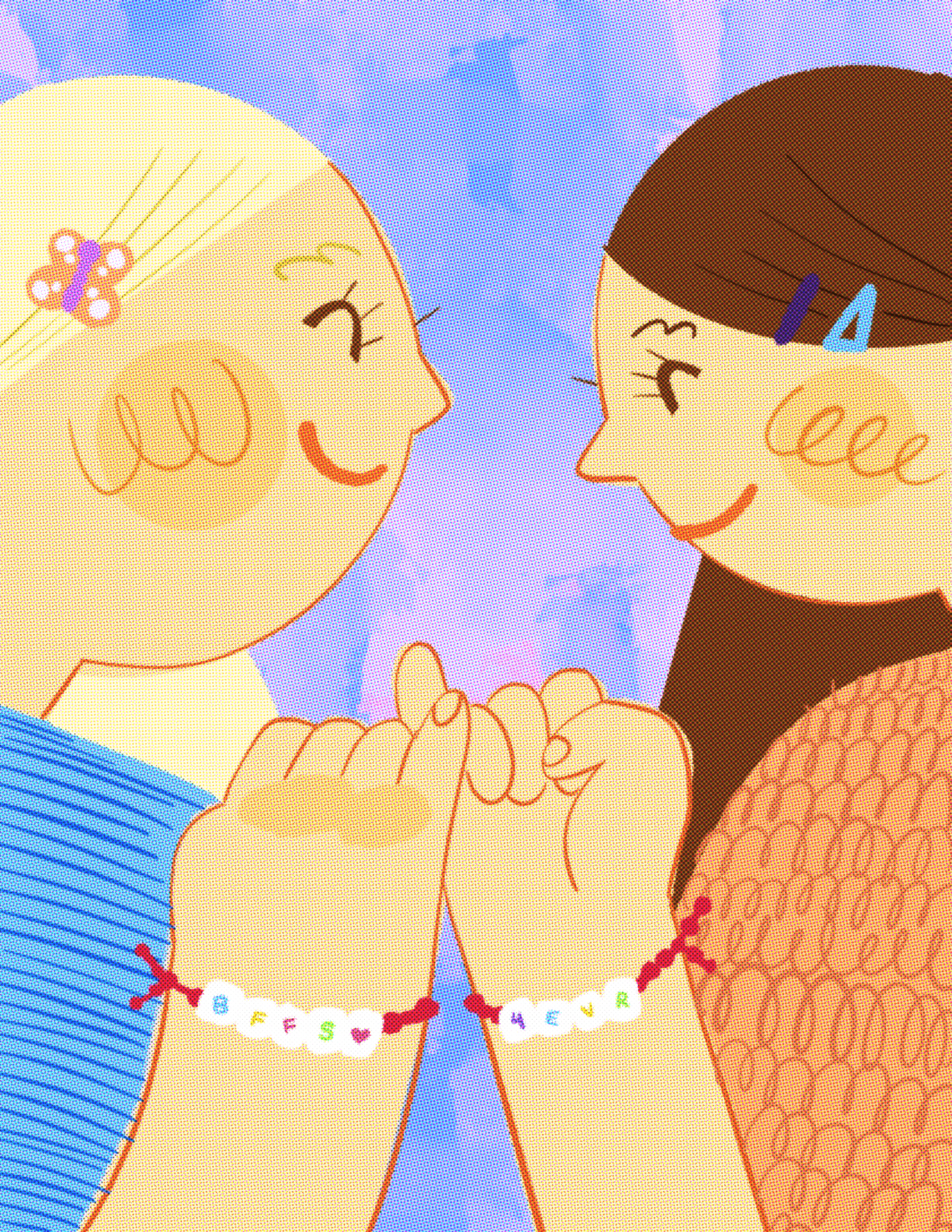
Growing older and growing apart
Growing up, friends are a vital part of our lives. We spend copious amounts of time together, whether it be playing sports after school or having sleepovers on the weekends.
One thing we are sure of is that our friends will be there until the end—or will they?
I’ll be moving away from my hometown soon, the place I have lived for the majority of my life and potentially will never live in again. I’ll be starting a new chapter in my life in a different province where I don’t know anyone. Because of this, I have been thinking a lot about friendships and the importance they hold during our formative years.
Reflecting on my life has led me to ask myself what friendship means to me, and why we grow apart from our childhood friends. What will happen when I can’t just go watch a movie or grab a coffee with these people I’ve known for years, these people who know me best?
Emily Langan, an associate communication professor at Wheaton College in Illinois, told The Atlantic that “friendships are unique relationships because unlike family relationships, we choose to enter them.”
Friendships are also different from significant others or romantic relationships because we wouldn’t go weeks or months without talking to our partners, Langan explained.
As we grow older, our views may change and our life experiences can differ from our friends. When this happens, we may grow apart from those we once thought would be in our lives forever.
For myself, this is something I noticed long before my recent decision to move—especially upon finishing high school. During high school our friends are our world, but after graduating we all head in different directions.
I stayed in my hometown after graduation and quickly realized it wasn’t for me. I began to travel and, eventually, found myself enrolled at Humber College in Toronto. All of these experiences post-high school have played a huge role in becoming who I am today. And because of these experiences, I have found that my values and interests no longer align with the people I once shared so much with.
Besides growing apart from my friends because of these changes, friendships often fizzle out because we just don’t have time to keep up with everyone anymore.
A study conducted by scientists at Aalto University in Finland and the University of Oxford in England found that at around age 25 people tend to see a decline in their social circles.
Turning 25, I have seen this decline myself. In my early 20s when I was studying abroad, I stayed in a friend group that made me feel excluded and anxious because I thought it was better than being alone in a foreign country. I wanted to be accepted, as so many of us do in our younger years. I would seek approval from people I thought were my friends. After a while, I started to realize that some of these people didn’t act like true friends should.
But now that I’m older and friends become busy with beginning their careers and finding partners, I begin to ask: who is really worth my time and effort? We all start to prioritize those who are valuable and beneficial to our lives, while also reevaluating if some friends were even friends to begin with.
Cutting out unhealthy friendships is important for our own mental health. It creates space for friends that are there to uplift us and who we feel happy to be around.
About the author
Youth Mind’s Contributing Editor turned Managing Editor, Haeley DiRisio, aspires to one day become a published author, preferably writing from the comfort of a cottage in the English countryside.







